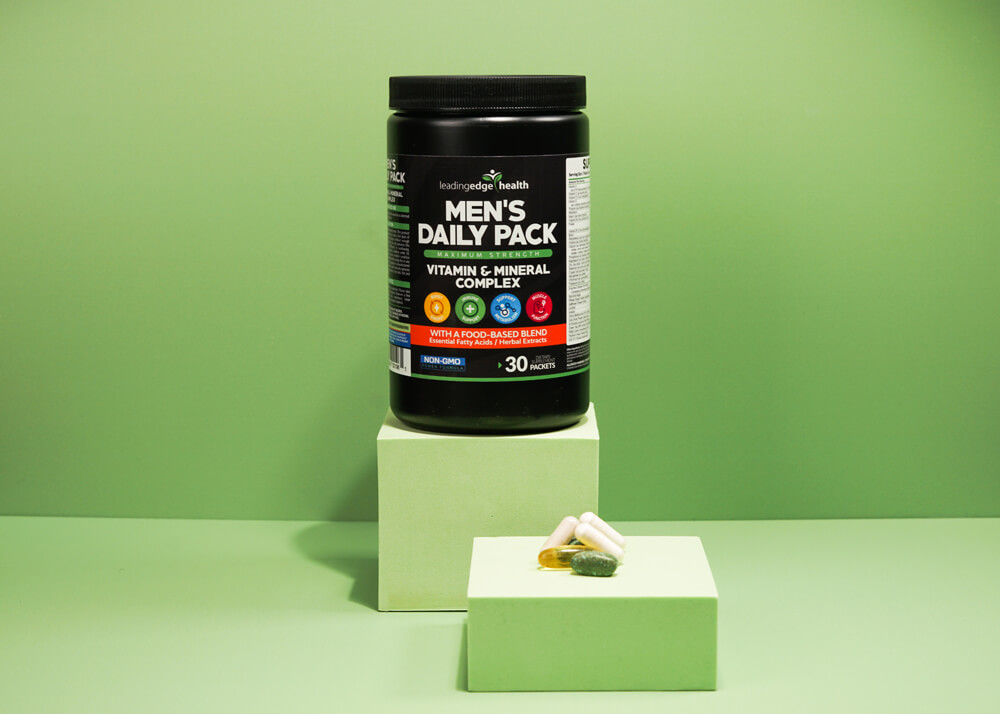Intrusive thoughts have a way of ruining an otherwise good moment. These random thoughts (or images) often come out of nowhere and have a distressing undertone. Unfortunately, 94% of people have intrusive thoughts or impulses on a semi-regular basis, according to Concordia University and 15 other universities worldwide.1
What classifies as an “intrusive thought”? How do you know if you’re having one? And, how do you make them stop?
If you’ve ever felt an impending sense of doom… for seemingly no reason, you might be having an intrusive thought. Although intrusive thoughts are often violent, graphic, or disturbing, it’s important to remember that they are innately unwanted.
Common themes among intrusive thoughts include:
- Self-harm/Harming a loved one
- Sexually graphic fantasies
- Making mistakes/Causing accidents
- Immoral or Religious blasphemy
Intrusive thoughts are often recurrent and distressing to the individual. It’s easy to get overwhelmed with thoughts that won’t go away if you’re unaware of how to manage them. But, we’re here to help!
What Causes Intrusive Thoughts?
Just about everyone has intrusive thoughts from time to time. More frequent intrusive thoughts may be linked to OCD. In most cases, though, intrusive thoughts can be linked to stress, hormonal changes, or vitamin deficiencies.2
For example, a woman who’s just given birth may be more susceptible to intrusive thoughts. Or, you could be more likely to have intrusive impulses if you’re stressed about a big work project or school exam. More frequent distressing images can be a result of a poor diet, too.
Many people are able to minimize these distressing notions with simple lifestyle changes. However, if your intrusive thoughts become unmanageable, it might be time to seek the advice of a medical professional.
Naturally Combat Intrusive Thoughts with These 7 Tips
Intrusive thoughts are difficult to combat, but keeping them at bay is possible. While everyone has a different way of dealing with intrusive thoughts, there are some methods that psychologists recommend trying first.
Below, we’ve listed 7 science-backed ways to naturally combat intrusive thoughts that can significantly help you improve your quality of life. Let’s check them out.
#1: Maintain a Regular Routine
Structure and routine can be an incredible adversary to people suffering from regular intrusive thoughts.3 Staying focused, organized, and on-task can minimize stress throughout your day.
Routine can act as a distraction even in the midst of intrusive thoughts or compulsive behaviors. Set individual tasks for yourself at work, at home, and everywhere in between. This will help eliminate the “what ifs” you may be feeling during certain situations.
The natural progression of a regular routine can help boost confidence, provide distraction, and relieve stress – all of which are known to help keep intrusive thoughts at bay.

#2: Get More Sun
You probably already know Vitamin D has loads of benefits for your bones. But, did you know this essential vitamin is also great for your overall mental well-being? Research suggests that a high number of people with intrusive thoughts due to OCD have Vitamin D deficiency.4
As many as 40% of adults are Vitamin D insufficient – with 6% of adults being classified as deficient.5
Increasing Vitamin D levels is paramount to taming a wide range of common mental health problems, from depression to OCD to regular intrusive thoughts.
Experts recommend 20 minutes of sunshine daily (with over 40% of skin exposure) to prevent deficiency.6 However, remember too much sun can pose its own risks, so moderation is key.
#3: Boost Vitamin D in Other Ways
Anywhere from 50-90% of our Vitamin D is absorbed through the skin via sunlight – the rest we get from our diet. Health experts recommend supplementing your diet with foods that contain high levels of Vitamin D, including;
- Fortified dairy or nut milk products
- Fortified orange juice
- Fatty fish (salmon, tuna, sardines, swordfish)
- Eggs (particularly the yolk)
- Beef liver
In addition, taking Vitamin D supplements can be beneficial for certain demographics, including those who;
- Are elderly
- Have darker skin
- Live further from the equator
- Mostly stay inside
- Have a high risk for cancer
Vitamin D is an essential nutrient for our mental health. If you’re unable to get enough sun exposure, supplementing your diet is a good idea.
#3: Stay Hydrated
You might be surprised to learn that there is a high correlation between your blood sugar levels and your mood. Irritability, anxiousness, and stress can all trigger distressing intrusive thoughts. But wait, what does that have to do with staying hydrated?
Well, drinking lots of water helps the kidneys flush out excess glucose (sugar). Experts recommend drinking anywhere from 6-8 glasses of water per day to help balance mood. Of course, the amount of water you drink can vary depending on your activity levels, sex, and body size.
Tips for staying hydrated throughout the day:
- Keep a reusable bottle nearby
- Enhance flavor with a squeeze of lemon or lime
- Pair your meals with a glass (or two) of water
- Consume water-rich fruits and veggies
Keeping hydrated can prove beneficial for both your mental and physical health. So, if you want to help naturally keep intrusive thoughts at bay, try adding more water to your regular routine.
#4: Minimize Morning Dread
“Morning dread” is a common occurrence for many people. If you’ve ever woken up with a sense that something bad is going to happen or have feelings of anxiousness but don’t know why, you’re not alone.
Our cortisol levels are spiked during the first 30-40 minutes of waking up – a process known as Cortisol Awakening Response (CAR).7 While this process is intended to help us get up and ready for the day, many people have an adverse reaction.
The following tips can help you combat morning dread:
- Avoid overthinking by getting up ASAP
- Remind yourself – “These feelings are normal.”
- Get complex carbs (like oatmeal or a cereal bar) into your system
- Plan your morning the night before
Remember, everyone has a unique way of dealing with morning dread. Some people prefer to listen to music, while others enjoy getting out and exercising. The key is to keep trying and see what works for you!

#5: Try Breathing Techniques
Stress is a major trigger for intrusive thoughts. It’s a vicious cycle that can leave you feeling trapped in a loop of constant anxiousness. Breathing techniques can help center you and decrease your distress in the moment.8
Try this breathing technique for stress:
- Find a comfortable place with minimal distractions
- Silently count inhalations and exhalations
- Start with 10 minutes in the morning, 10 minutes at night, and any time you’re bothered by intrusive thoughts
Knowing that you have a game plan can help keep you calm in otherwise stressful situations. Breathing techniques can be used anytime you feel panicked by helping you focus on the present moment.
#6: Break the Cycle
Remind yourself that intrusive thoughts are not voluntary. Being able to accept uncertainty and avoid seeking reassurance can be difficult for people with frequent intrusive thoughts.9 Providing yourself with a distraction can be a great way to break the cycle.
When you start to feel intrusive thoughts coming on, try distracting yourself with something you enjoy doing (even if only for a few minutes). This could include;
- Drawing
- Reading
- Going for a walk
- Playing with a pet
- Texting a friend to chat (not for reassurance)
Understanding that intrusive thoughts don’t control you can go a long way toward minimizing future episodes. Distractions can be a great way to break the cycle before you get pulled in too deep.
#7: Multivitamins are Your Friend
As we mentioned earlier, intrusive thoughts can be caused by vitamin deficiencies. Vitamin B-12, for example, has been shown to be an early indicator of OCD. In fact, according to the National Institutes of Health (NIH), B-12 paired with folate is a viable therapy for treatment of OCD.10
The most common nutrient deficiencies that can impact intrusive thoughts include: 11,12,13
- Vitamin B-12
- Vitamin B-6
- Folic Acid
- Vitamin D
- Omega-3
- Homocysteine (Amino Acid)
Unfortunately, it can be difficult to get enough brain-healthy nutrients into our system through diet alone. For example, getting enough Vitamin B-12 (2.4 mcg for the average adult) daily can be challenging on its own.
Here’s a breakdown of a few high sources of B vitamins:14
- Cooked salmon (3 ounces = 2.4 mcg)
- Beef liver (3 ounces = 70.7 mcg)
- Low-fat milk (1 cup 1.2 mcg)
- Hard-boiled egg with yolk (0.6 mcg)
- Ground lean turkey (3 ounces = 1.6 mcg)
A typical multivitamin, however, can contain all the Vitamin B-12 you need per day. While health supplements can help improve vitamin deficiencies, they’re not the answer for everyone. Speak with a medical professional before starting any new regime.

Keeping Intrusive Thoughts at Bay is Possible
Intrusive thoughts can be disturbing and distracting to your day-to-day life. However, it’s important to remember these notions do not necessarily reflect the characteristics of the person thinking about them.
Minimizing intrusive thoughts is possible. We recommend a combination of proactive approaches for maximum efficacy. Pairing mindfulness practices with a high-quality health multivitamin like our Men’s Daily Pack can put you on the right path toward a better future!
Endnotes
1. https://www.sciencedaily.com/releases/2014/04/140408122137.htm
2. https://www.health.harvard.edu/mind-and-mood/managing-intrusive-thoughts#
5. https://psychcentral.com/blog/does-vitamin-d-deficiency-impact-mental-health#signs
8. https://www.health.harvard.edu/mind-and-mood/breath-meditation-a-great-way-to-relieve-stress
9. https://psychcentral.com/ocd/ocd-cycle#how-to-break-the-cycle
10. https://www.sciencedirect.com/science/article/abs/pii/S016517811631441X
11. https://www.ncbi.nlm.nih.gov/pmc/articles/PMC3573587/
12. https://www.ncbi.nlm.nih.gov/pmc/articles/PMC3573587/
